Using the above data structure, I want to get back records based on the grouping of model_id, how important the record is, and how recent the record is. So for this data, I want to get back records 2, 4, 6, 7 and 10.
- I want to get back record 2 because for model_id 1, records 1 and 2 are of the same importance, but 2 is more recent.
- I want to get back record 4 because for model_id 2, record 4 has a higher importance than record 3.
- I want to get back record 6 because for model_id 3, records 5 and 6 are of the same importance, but 6 is more recent.
- I want to get back record 7 because it is the only record for model_id 4, regardless of its importance level.
- I want to get back record 10 because it has a higher importance, and it is the most recent of the higher importance records for model_id 5.
The score field isn't really important to the query, it's just the value I want to use when I get back the result set I want.
I'm using MySQL 5.6 for this.
Anyone know how to attack this?
Edit: Adding a link to db-fiddle: https://www.db-fiddle.com/f/9ZEcpn7vfBebAxnEBtfAwe/0
This is the result set I want back:
2, lower, 4.6, 1, 2018-10-02 12:00:00
4, higher, 6.3, 2, 2018-08-13 12:00:00
6, higher, 4.1, 3, 2018-08-23 12:00:00
7, higher, 7.1, 4, 2018-08-11 12:00:00
10, higher, 4.7, 5, 2018-09-14 12:00:00
This is the SQL I have that has gotten close, thanks to a clue about using DENSE_RANK(). It gives me the right result in my local MySql Workbench, but not quite right on db-fiddle.
set @pk1 ='';
set @rn1 =1;
set @sal ='';
set @val =1;
SELECT id,model_id,
importance,
denseRank
FROM
(
SELECT id,model_id,
importance,
@rn1 := if(@pk1=model_id, if(@sal=importance, @rn1, @rn1+@val),1) as denseRank,
@val := if(@pk1=model_id, if(@sal=importance, @val+1, 1),1) as value,
@pk1 := model_id,
@sal := importance
FROM
(
SELECT id,model_id,
importance
FROM temp
ORDER BY model_id,importance,created_at desc
) A
) B where denseRank = '1' group by model_id;
